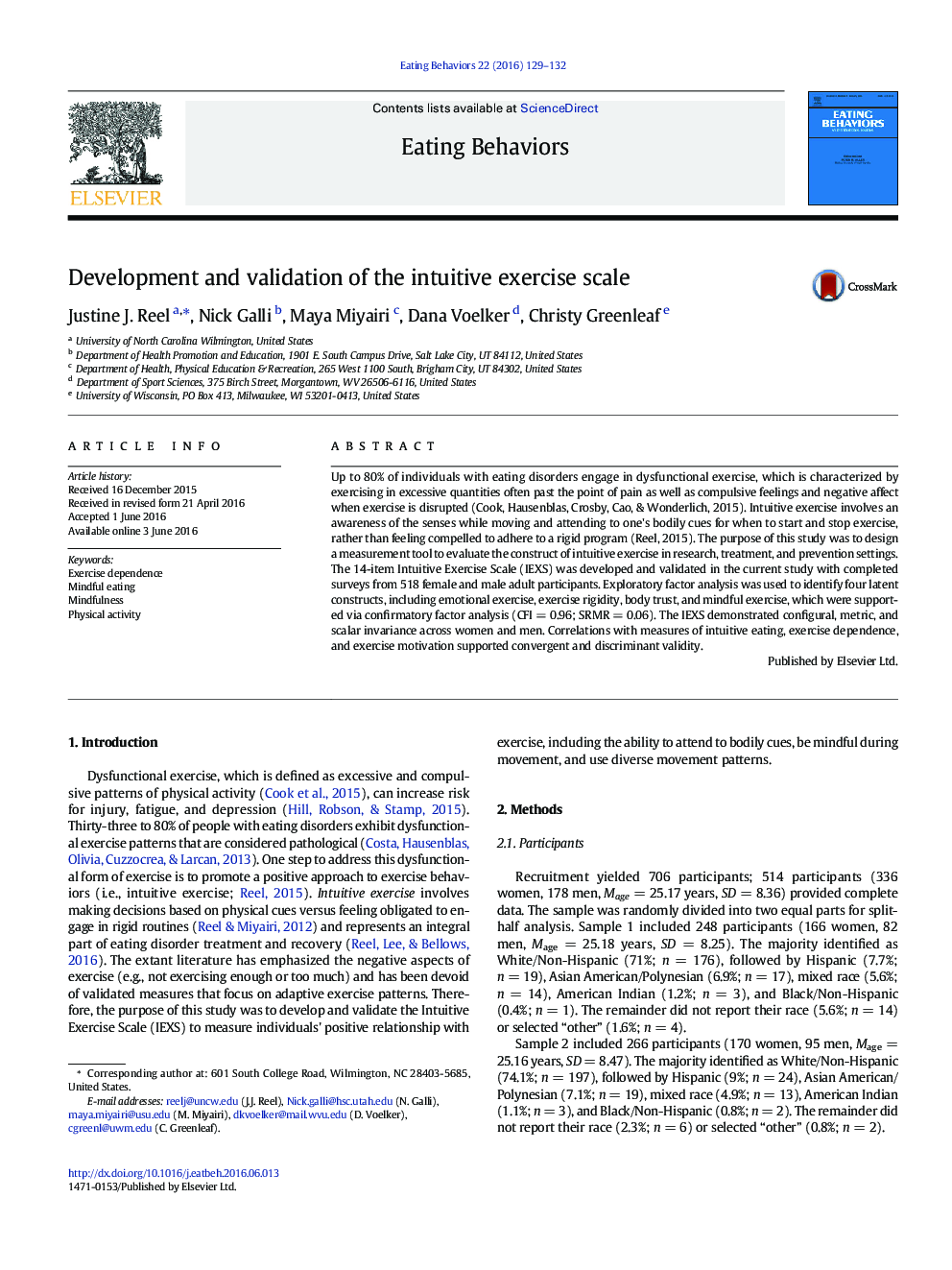| کد مقاله | کد نشریه | سال انتشار | مقاله انگلیسی | نسخه تمام متن |
|---|---|---|---|---|
| 906203 | 1472881 | 2016 | 4 صفحه PDF | دانلود رایگان |
• The Intuitive Exercise Scale (IEXS) measures four distinct dimensions of exercise.
• The IEXS subscales showed strong internal consistency reliability.
• The IEXS was invariant across men and women.
• The IEXS accounted for unique variance in exercise dependence.
• Exercising for emotional reasons was related to less exercise dependence.
Up to 80% of individuals with eating disorders engage in dysfunctional exercise, which is characterized by exercising in excessive quantities often past the point of pain as well as compulsive feelings and negative affect when exercise is disrupted (Cook, Hausenblas, Crosby, Cao, & Wonderlich, 2015). Intuitive exercise involves an awareness of the senses while moving and attending to one's bodily cues for when to start and stop exercise, rather than feeling compelled to adhere to a rigid program (Reel, 2015). The purpose of this study was to design a measurement tool to evaluate the construct of intuitive exercise in research, treatment, and prevention settings. The 14-item Intuitive Exercise Scale (IEXS) was developed and validated in the current study with completed surveys from 518 female and male adult participants. Exploratory factor analysis was used to identify four latent constructs, including emotional exercise, exercise rigidity, body trust, and mindful exercise, which were supported via confirmatory factor analysis (CFI = 0.96; SRMR = 0.06). The IEXS demonstrated configural, metric, and scalar invariance across women and men. Correlations with measures of intuitive eating, exercise dependence, and exercise motivation supported convergent and discriminant validity.
Journal: Eating Behaviors - Volume 22, August 2016, Pages 129–132
